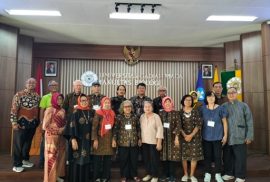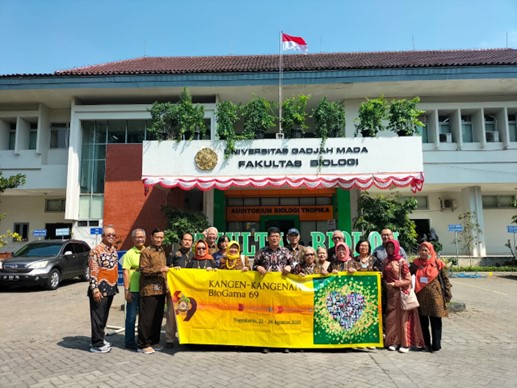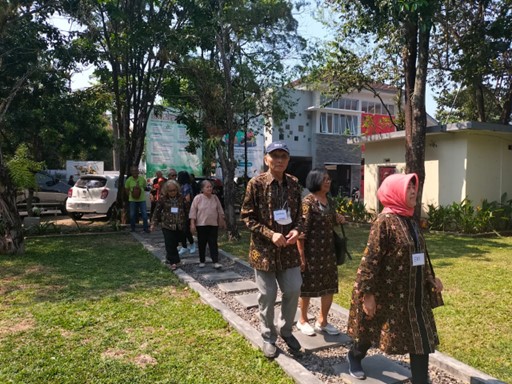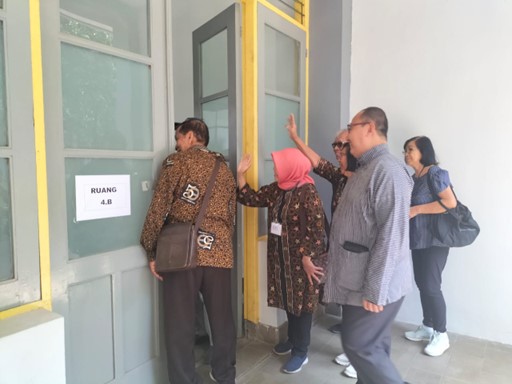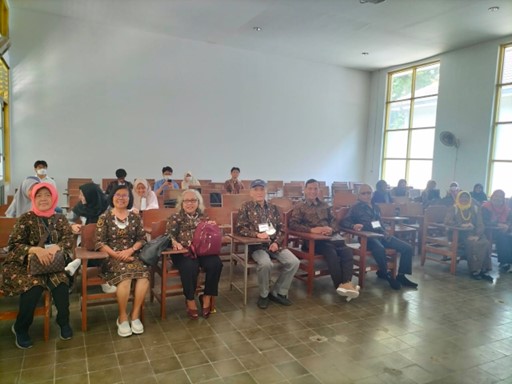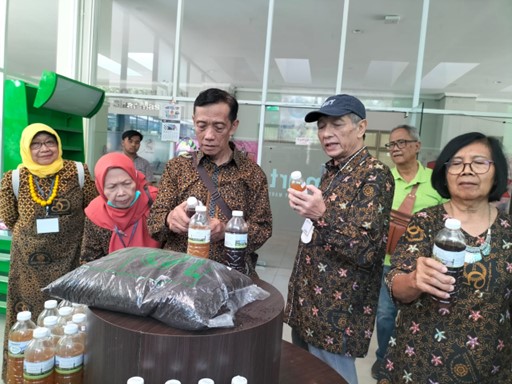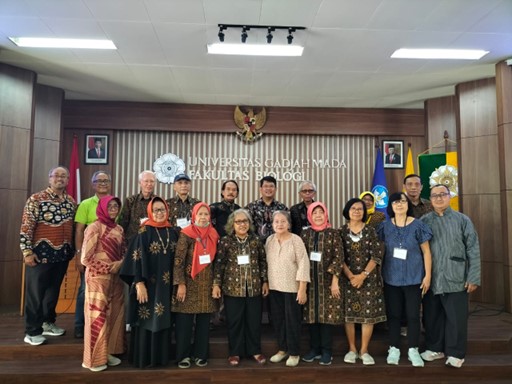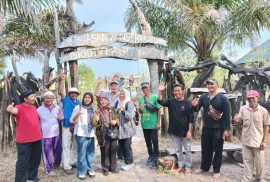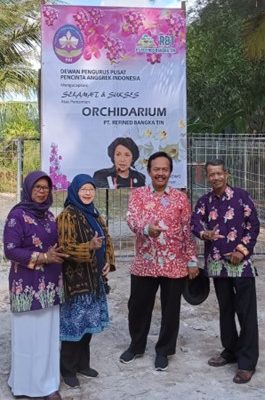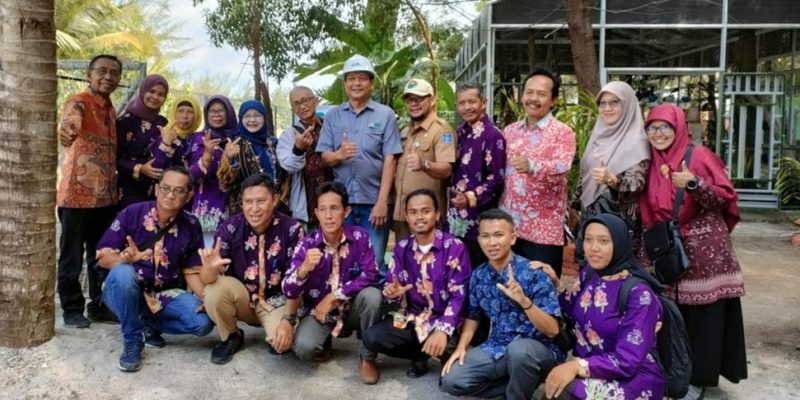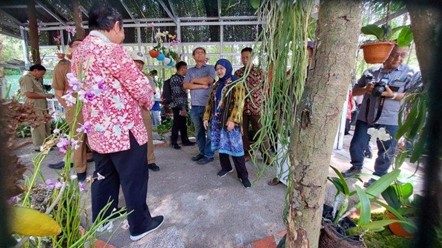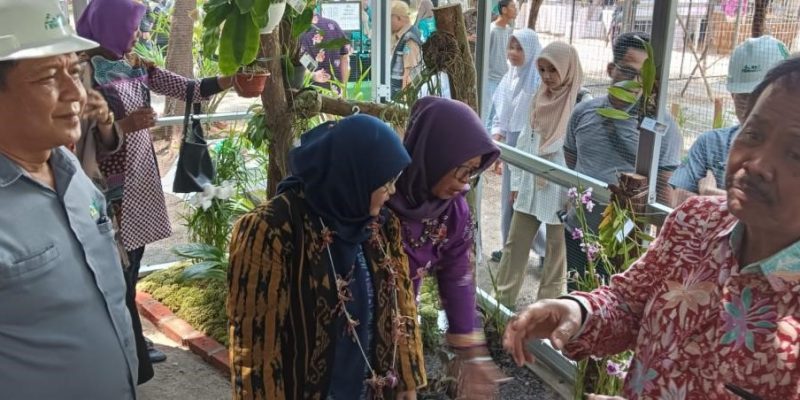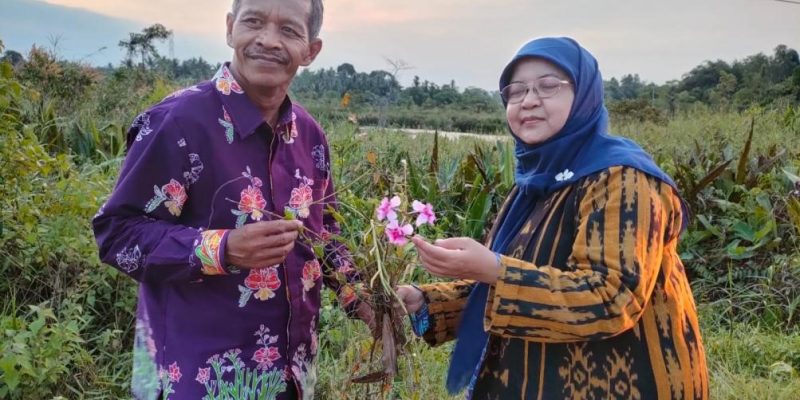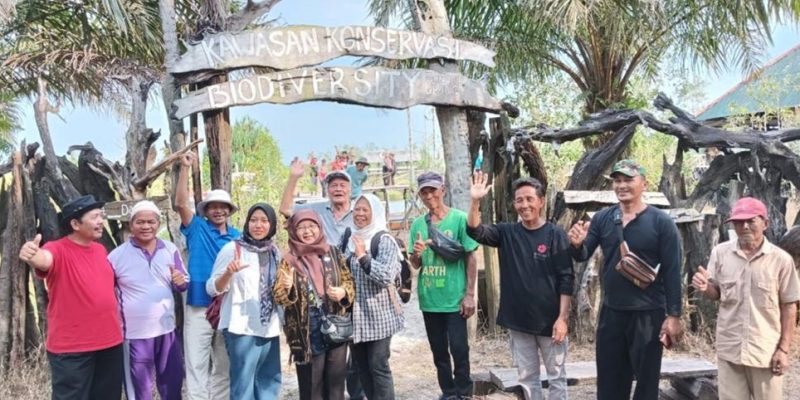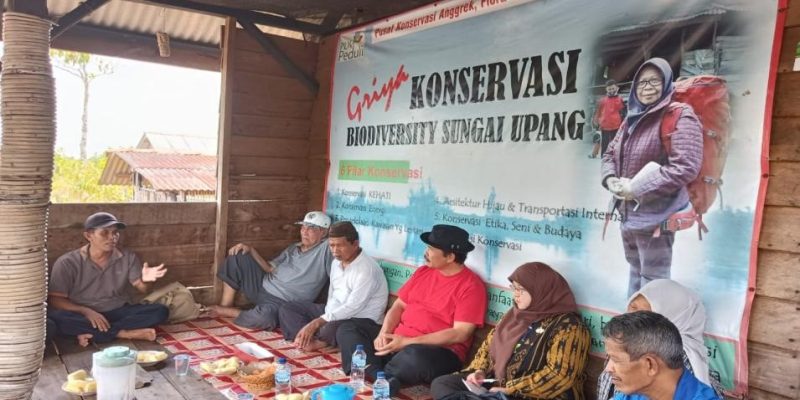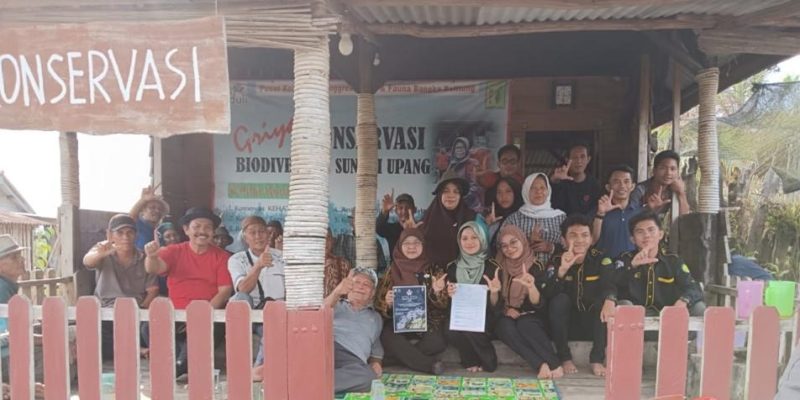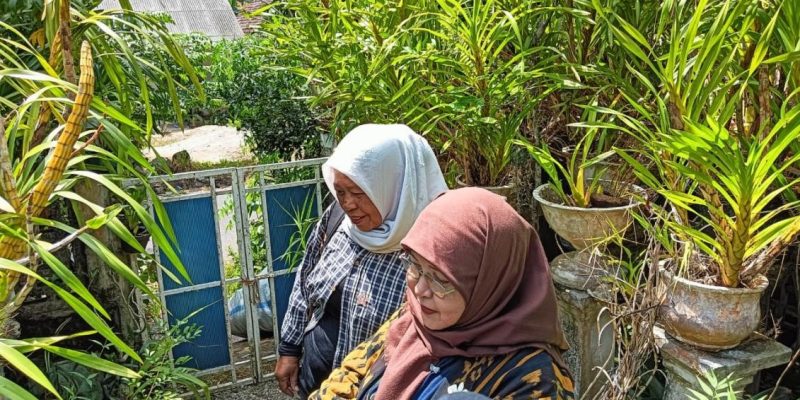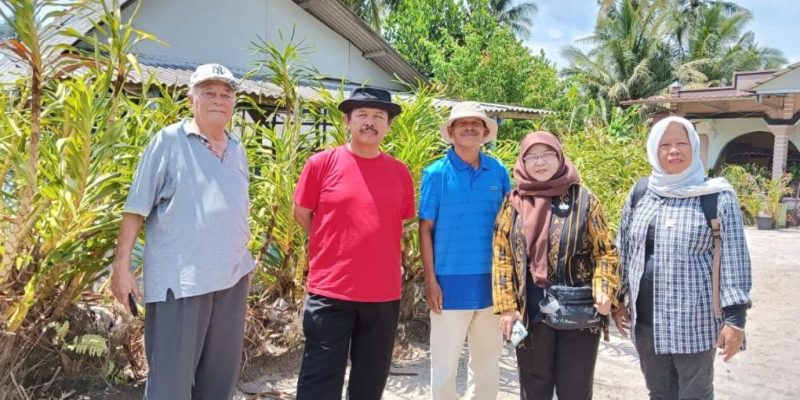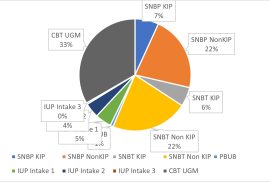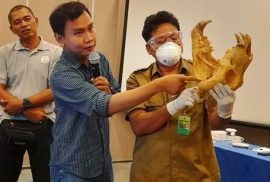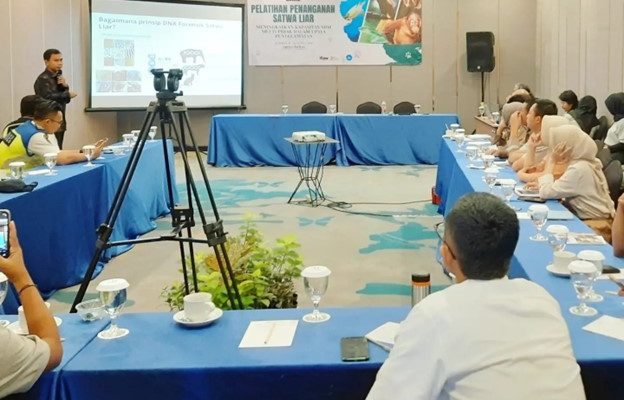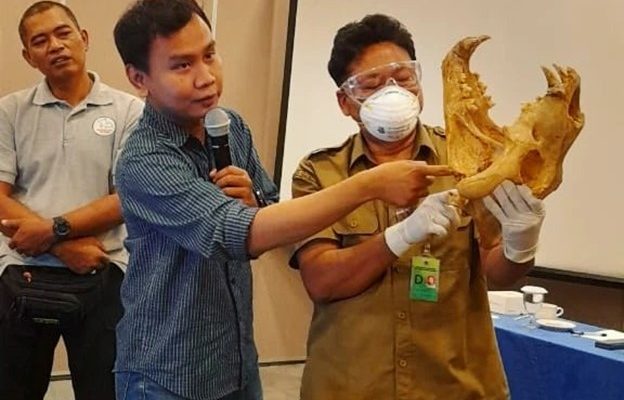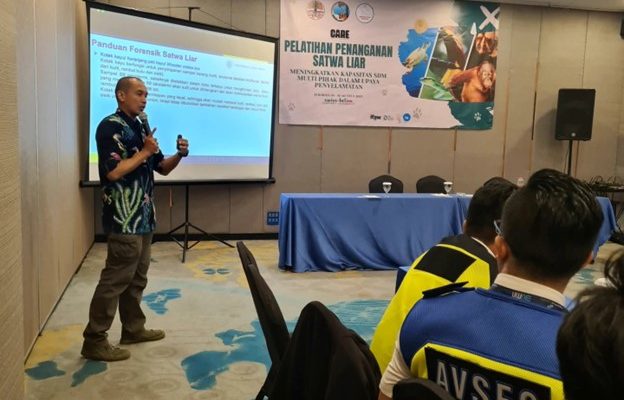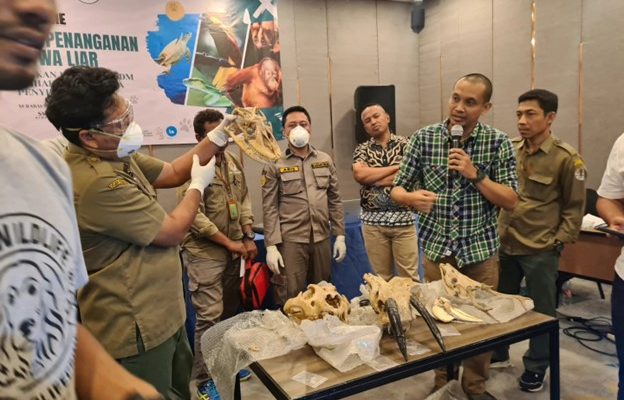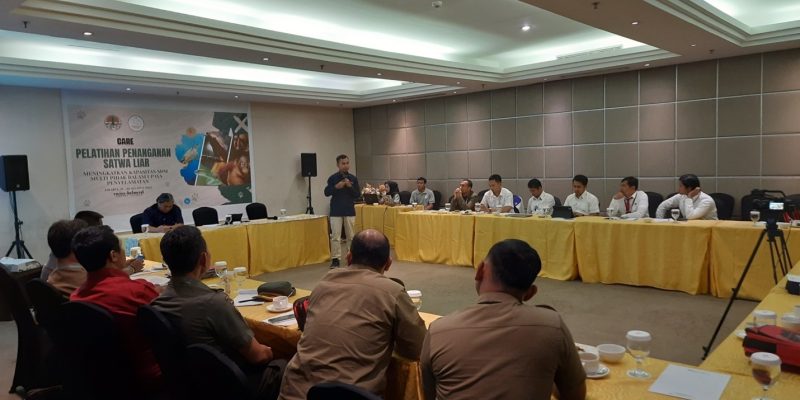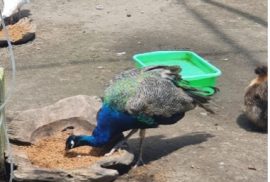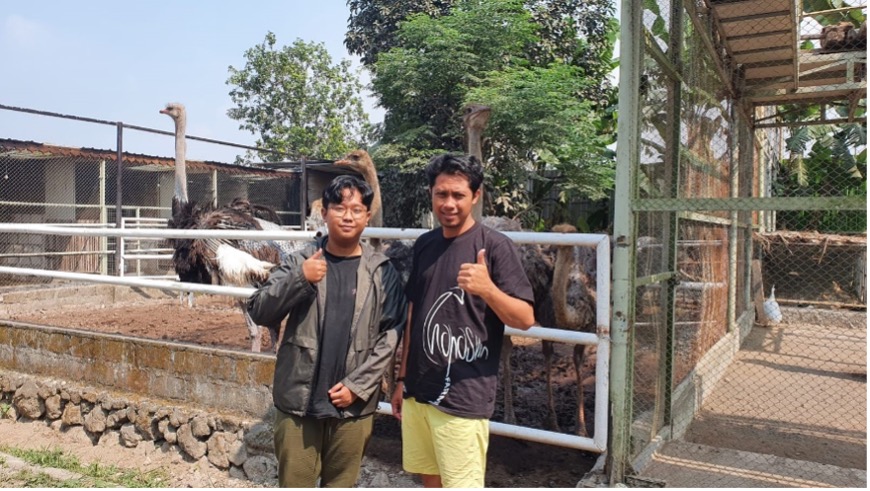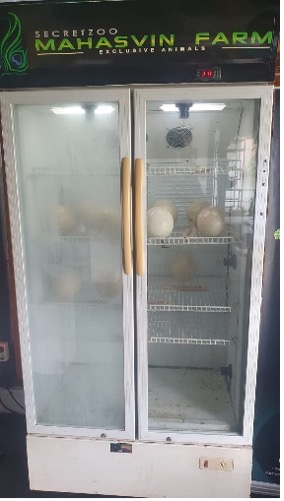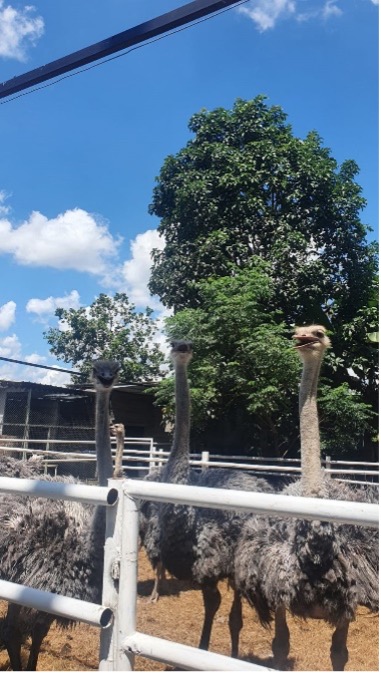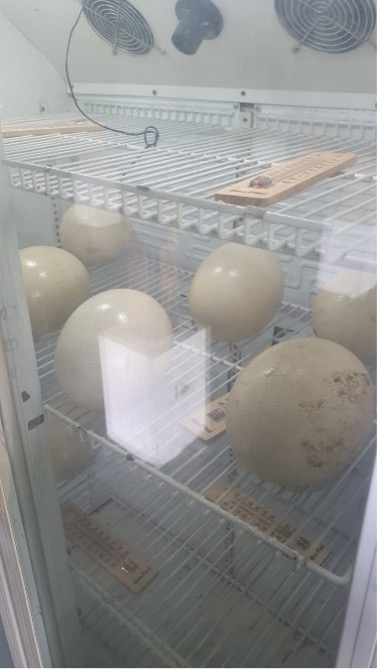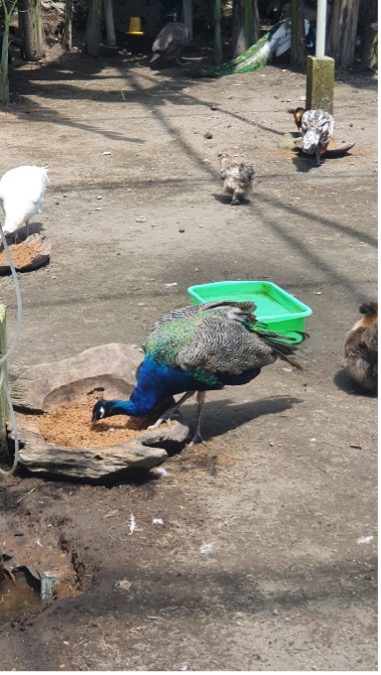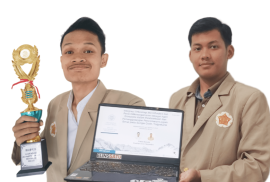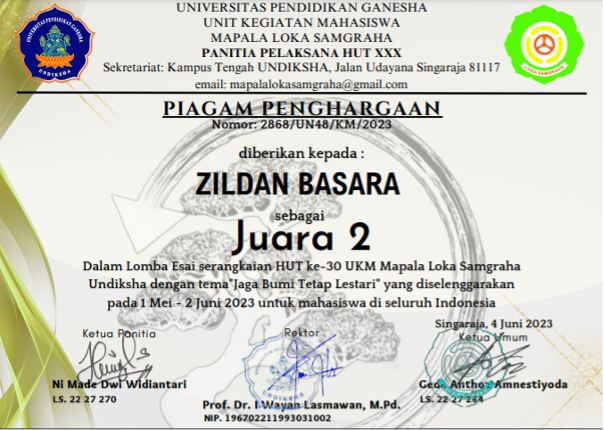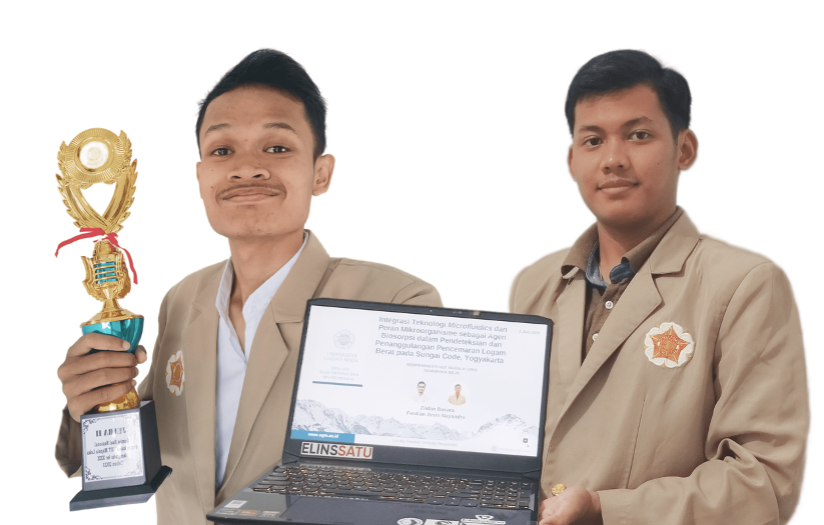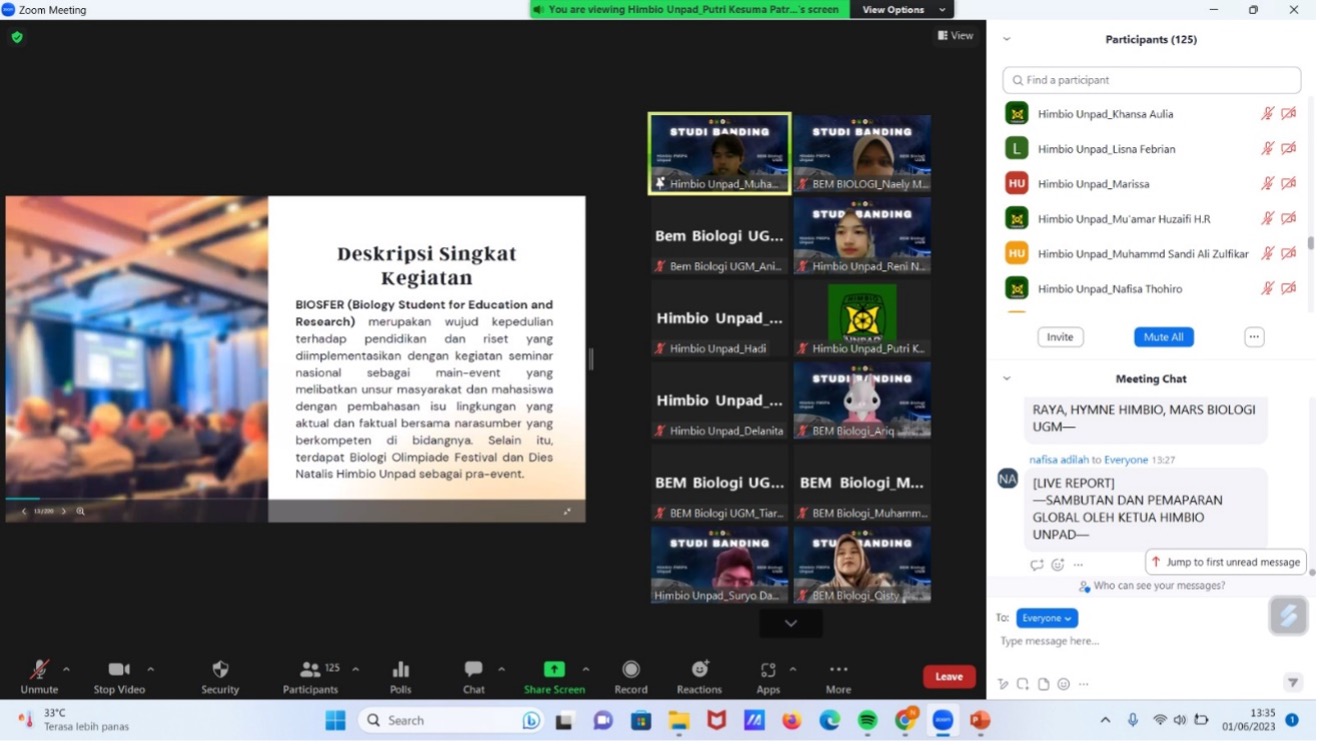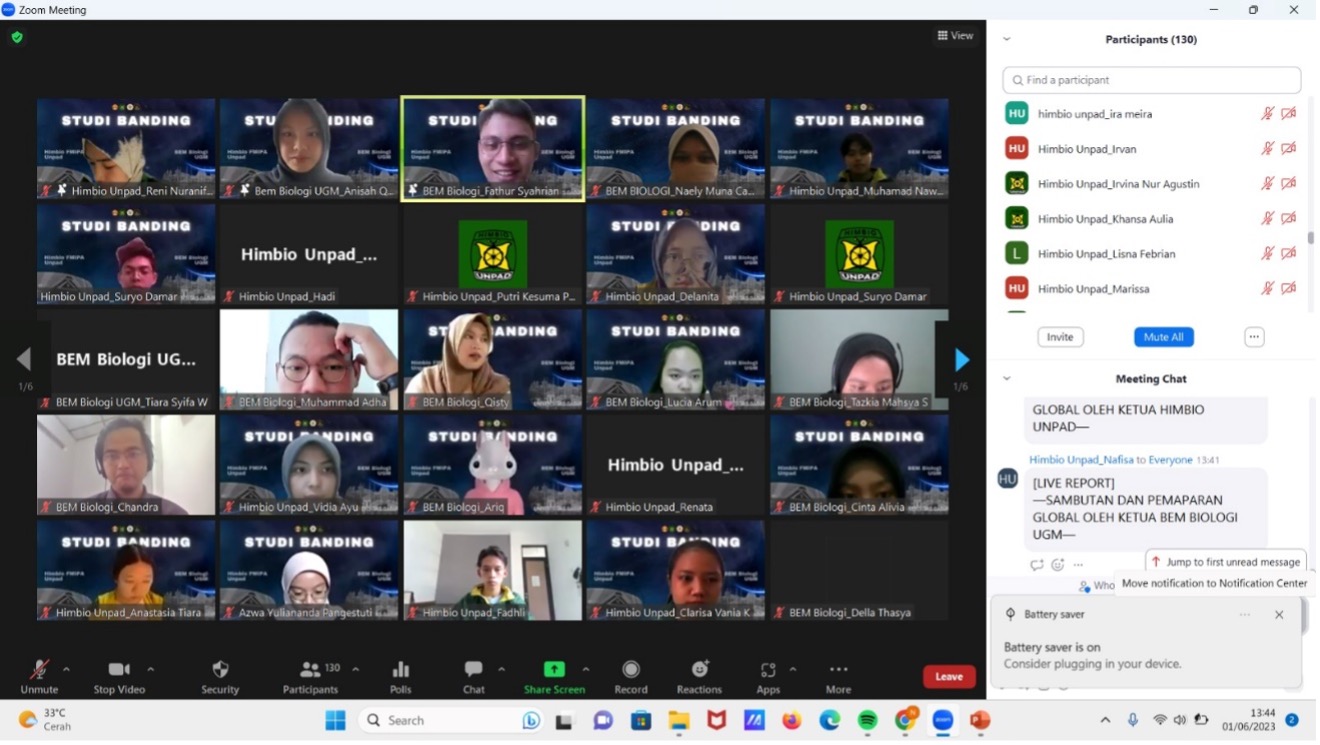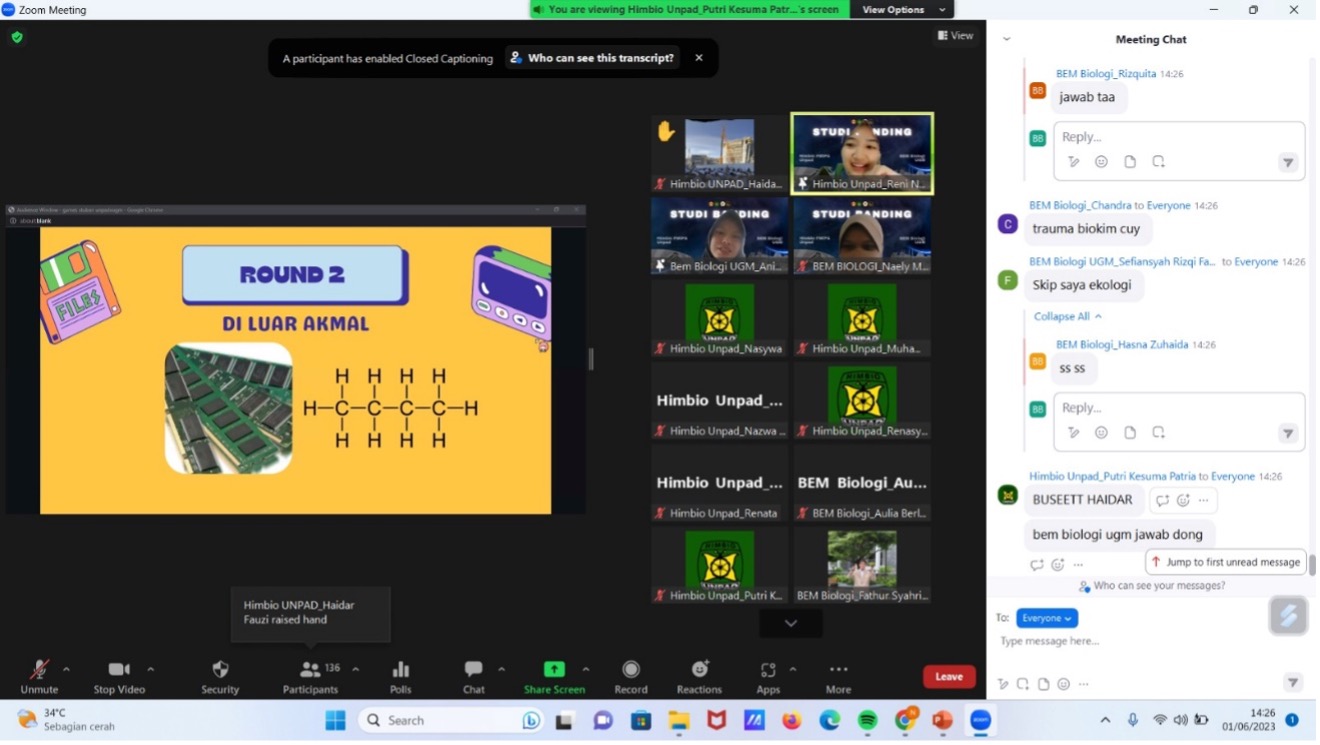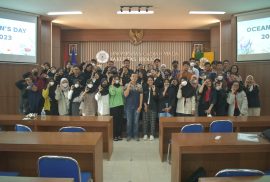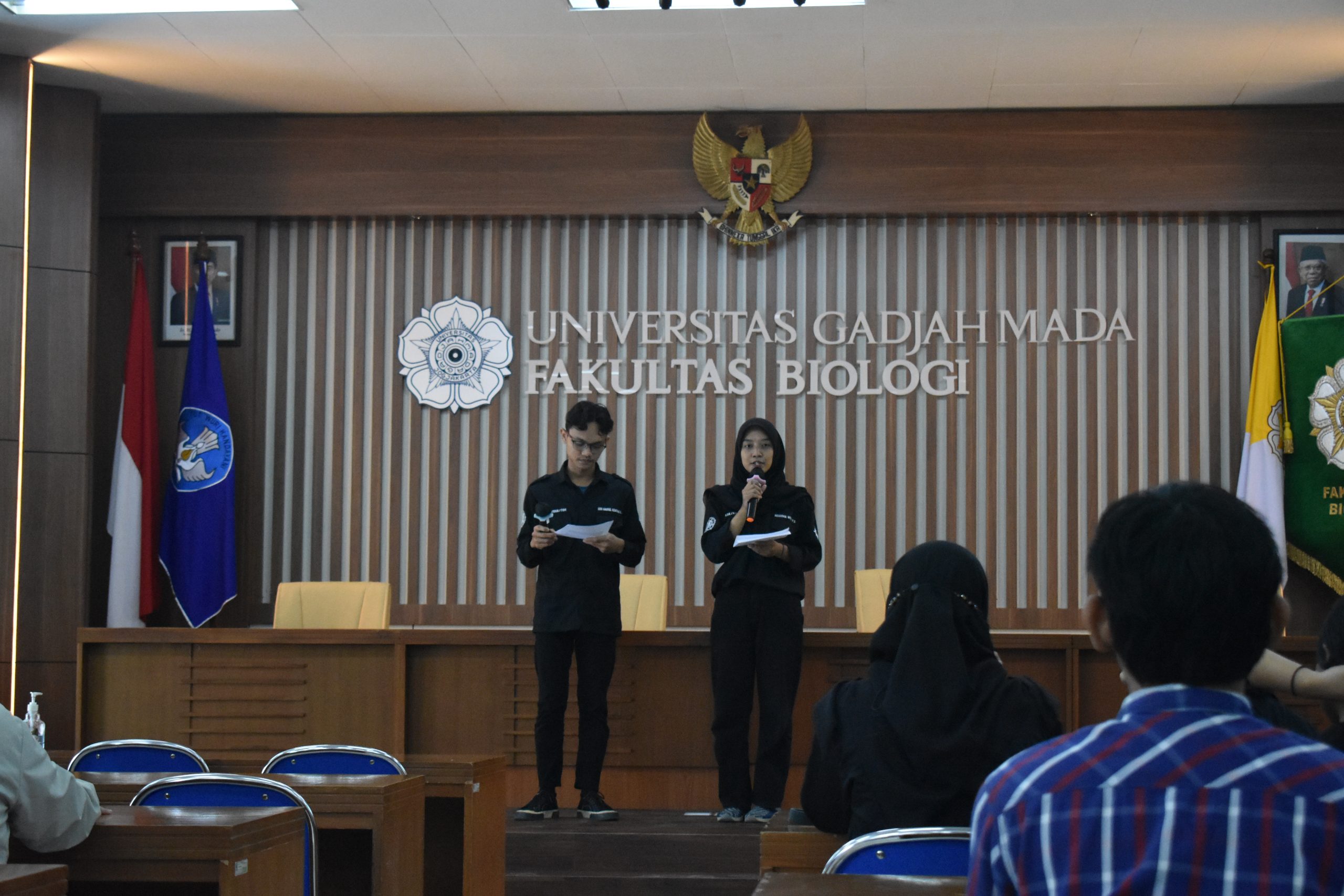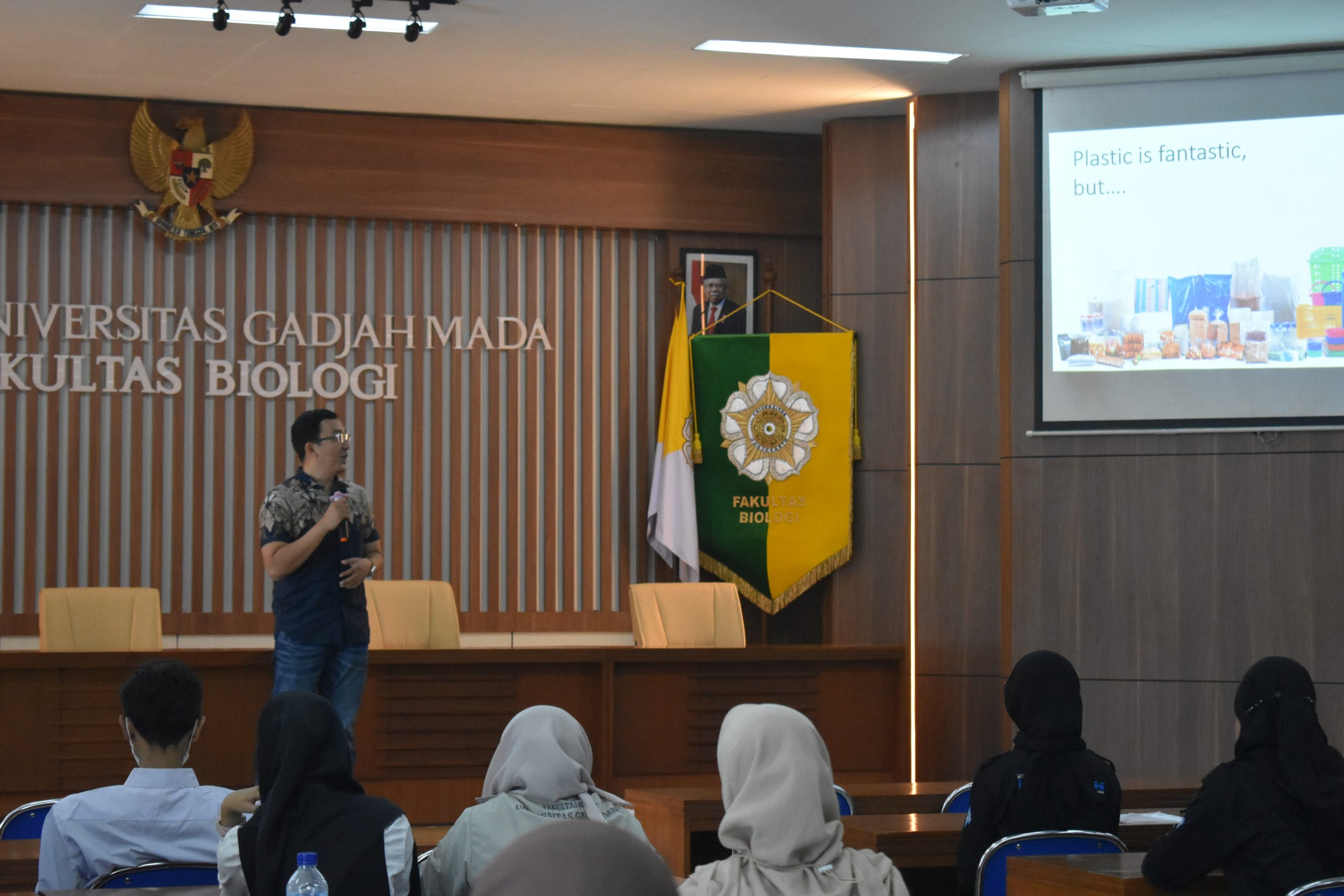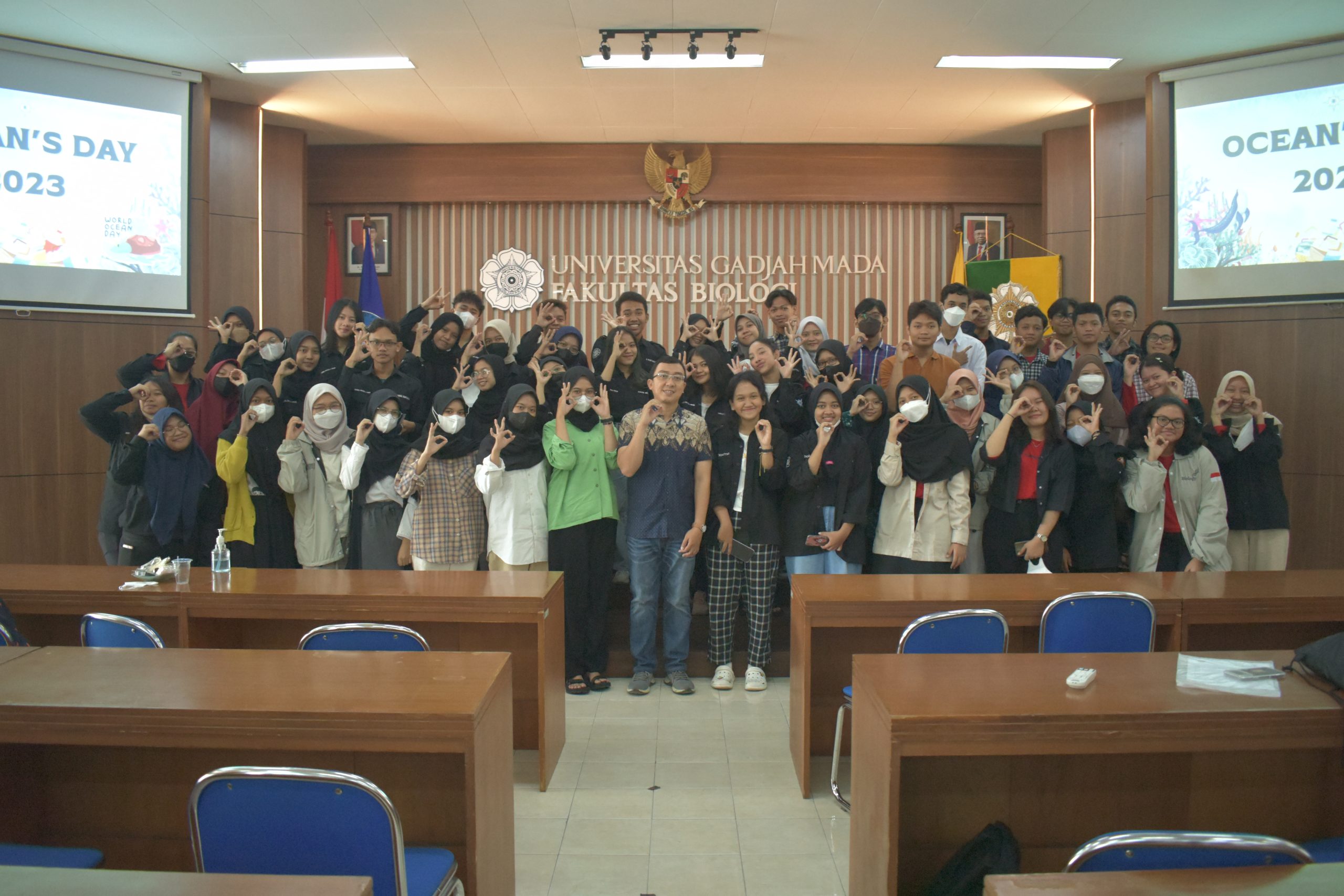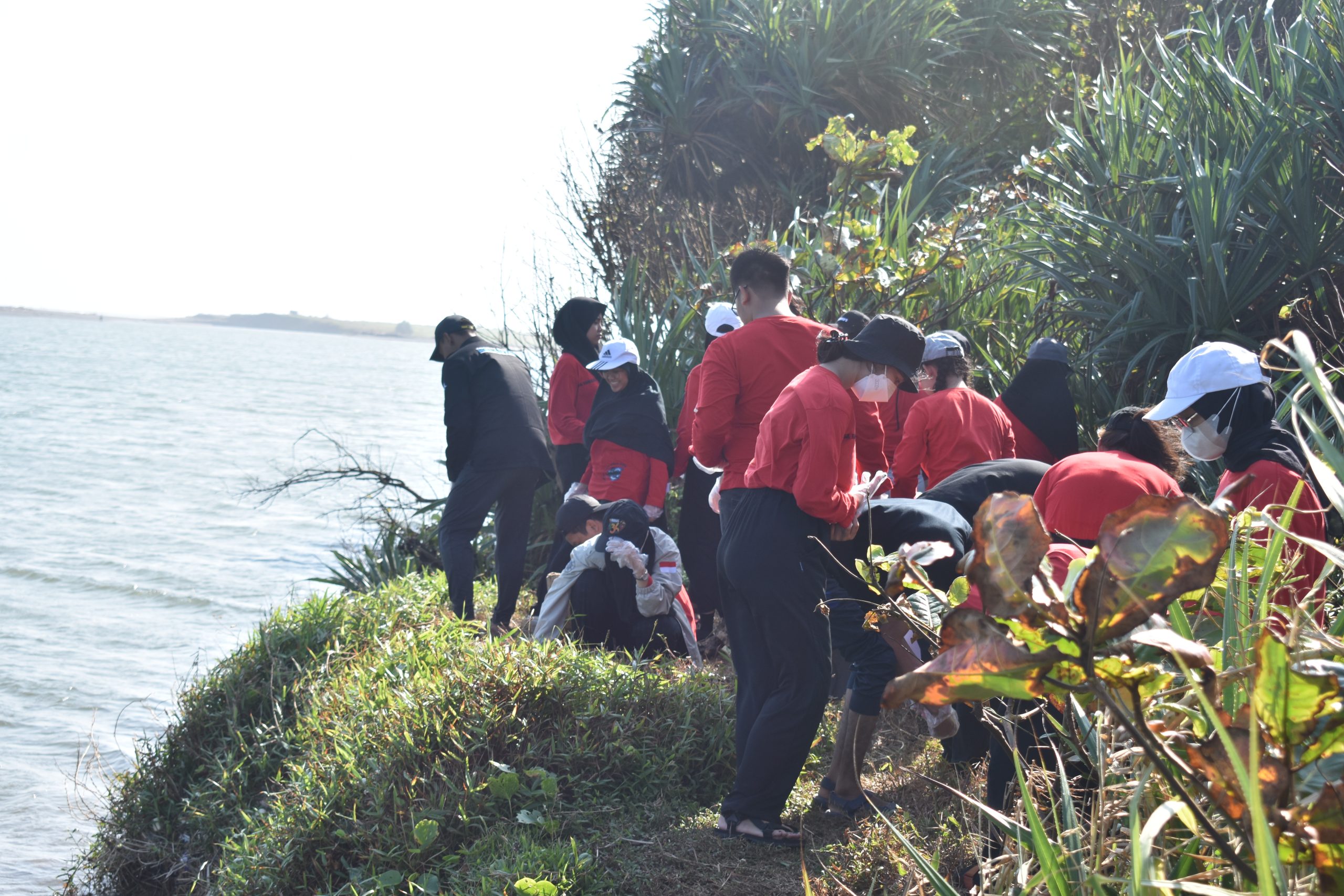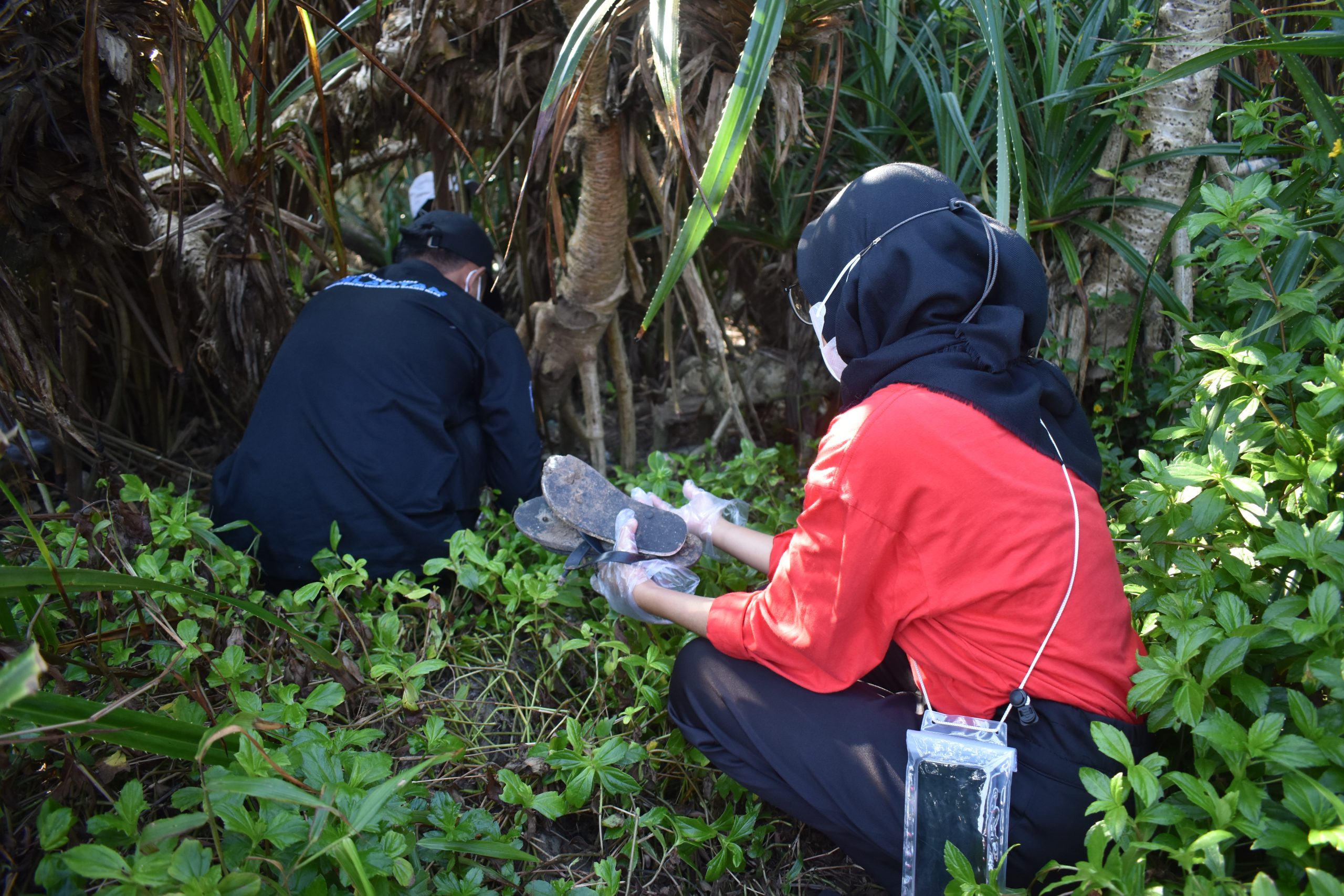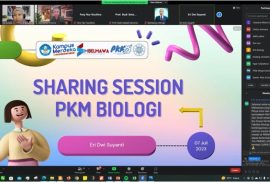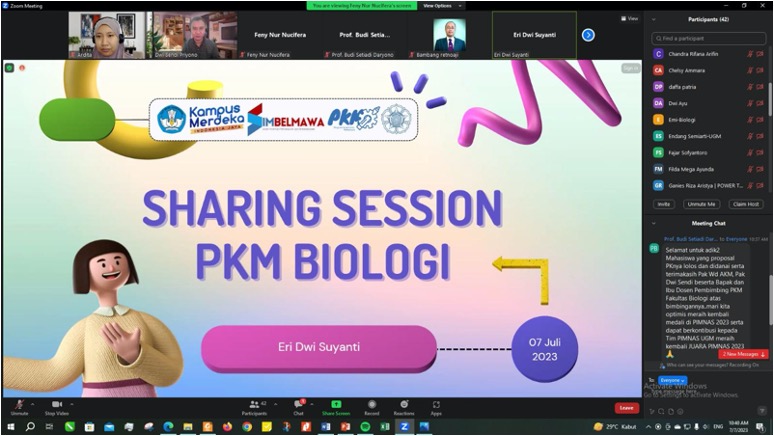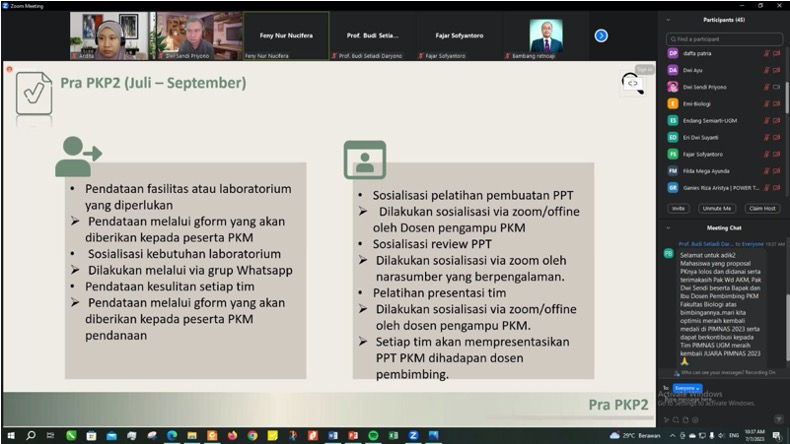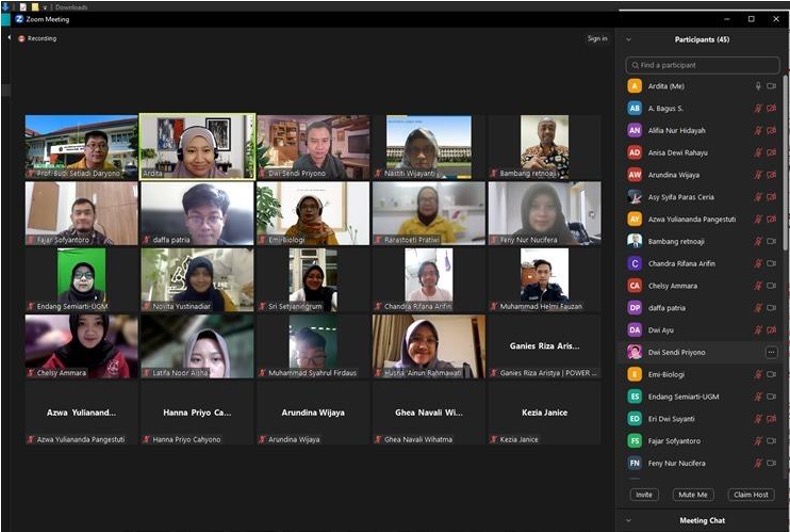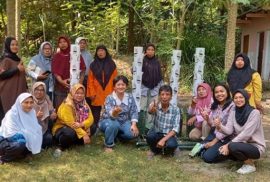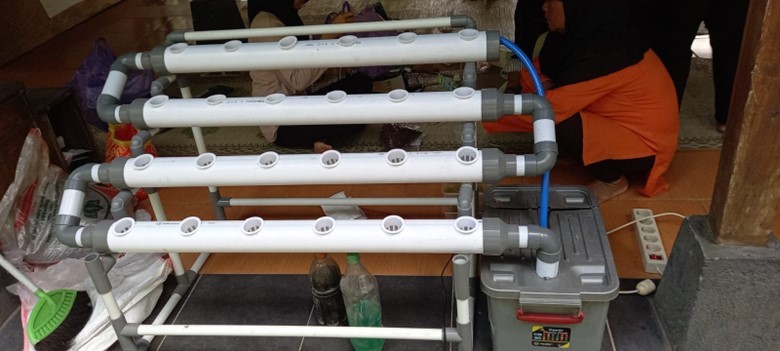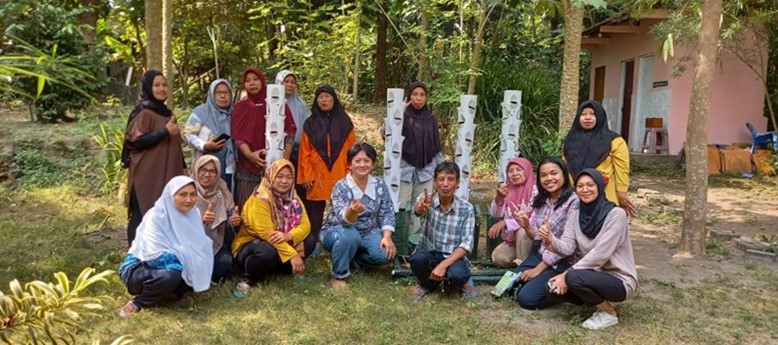News Release
The delegation left Bangka Belitung on August 15, 2023, with hopes that the collaborative efforts in cultivating and conserving endemic orchids of Bangka Belitung would soon materialize. May the substantial contributions to the preservation of Indonesia’s unique orchids become a reality soon. (Author: LAU).
As many as 228 new Undergraduate Program students were accepted at the Faculty of Biology UGM, consisting of 206 regular students and 22 international class students (IUP) in 2023. For the regular Undergraduate Program level, 64% of students received UKT scholarships. “It can be said that more than half of our total new students get subsidized Superior Education Single Tuition Fee (UKT) relief,” said the Dean of the Faculty of Biology UGM, Prof. Dr. Budi Setiadi Daryono, M.Agr.Sc., in an internal interview, Tuesday (22/8).
Budi considers the provision of scholarships to new students from underprivileged families as a concrete form of the commitment of the Faculty of Biology at Gadjah Mada University (UGM) to make the concept of a populist campus the foundation for providing affordable superior education for students with various social and economic backgrounds. In this regard, the Faculty of Biology UGM would also like to express its appreciation and gratitude to around 36% of parents of new students who have the financial capacity and have fully financed their children’s education without relying on UKT scholarships. This action is considered as part of the spirit of mutual cooperation in ensuring quality education for students, both current and future generations at the Faculty of Biology UGM.
Education is the foundation for the country’s progress, so that economic limitations are not an obstacle for the nation’s best young generation to achieve quality education on the UGM campus, said the Deputy Dean for Academic and Student Affairs (Dr. Bambang Retnoaji, M.Sc.). The Faculty of Biology UGM is firmly committed to forming future leaders who have a view of sustainability, especially for prospective students from all over Indonesia. Furthermore, the seriousness of the Faculty of Biology UGM in providing opportunities for the nation’s sons and daughters who meet the requirements to enjoy global quality education, while at the same time strengthening local roots, is a strong principle.
As a Legal Entity State University (PTNBH), Gadjah Mada University has the flexibility to form an identity as a national university that promotes inclusivity in student admissions, continued Bambang. This concept of inclusivity reflects the spirit to accommodate students from various walks of life, while maintaining the integrity and quality of education.
Bambang also explained that the distribution of new students for the Faculty of Biology UGM this year came from more than 25 provinces in Indonesia, from Sabang to Merauke. So that it is hoped that an equal education can be received by all generations of the nation, without exception and will be able to produce young leaders of the nation later, he concluded.
In early March 2023, the Merdeka Belajar Kampus Merdeka (MBKM) – 2023 Research Team from the Faculty of Biology at UGM, led by Dr. Bambang Retnoaji, M.Sc., along with a student named Andi Muhammad Naufal Khaeri, conducted observations on the embryonic development of eggs and the feeding of Ostriches at Mahasvin Farm, Yogyakarta. The purpose of this activity was to understand the process of breeding exotic birds, particularly Ostriches, in Yogyakarta, which is located at Mahasvin Farm.
The Mahasvin Farm exotic bird breeding group is currently making efforts to hatch exotic bird eggs, including Ostriches. These efforts aim to achieve several objectives, including the conservation of exotic animals, the development of exotic wildlife tourism for the community, and, most importantly, the enhancement of educational facilities and media for wildlife development and conservation. The potential for this endeavor is significant, and they have already succeeded in hatching various types of exotic birds. However, there are currently some challenges in maintaining the embryonic development of these exotic birds.
Based on the results of discussions and observations with partners, obstacles in the Ostrich hatching process were identified, such as the imperfections in the incubator machine and the inability of the current feed to fully meet the nutritional needs. Therefore, in May, it was discussed and initiated to create a new incubator process and develop a proper feed composition to ensure the successful breeding of Ostriches at Mahasvin Farm.
Biology students at Gadjah Mada University (S1) Zildan Basara made another achievement at the national level by winning 2nd place in the National Essay Competition in collaboration with student of Electronics and Instrumentation (S1), MIPA Faculty UGM Ferdian Arvin Nayandra.This national-level essay competition was organized by UKM MAPALA LOKA SAMGRAHA Universitas Pendidikan Ganesha, namely “Jaga Bumi Tetap Lestari”. The competition was opened on 1 May 2023, and the winners were announced on 10 June 2023.
In this competition, the team took the sub-theme Technology and Environmental Innovation with the title “Integration of Microfluidics Technology and the Role of Microorganisms as Biosorption Agents in Detection and Mitigation of Heavy Metal Pollution on the River Code, Yogyakarta”. The team discusses that rivers in Indonesia are vital resources for human life, serving as a source of drinking water, agricultural irrigation, transportation, and also rich in biodiversity. Unfortunately, many rivers in Indonesia Suffer from serious pollution, including being contaminated by heavy metals. According to the data from Bureau of Statistic (BPS), throughout the year 2021, 10,683 villages in Indonesia suffered from river contamination. In addition, according to the same data, approximately 46 percent of Indonesian rivers have experienced severe contamination, 32 percent have moderate, 14 percent have moderately polluted, and 8 percent have mild contamination. (Ministry of Maritime Affairs and Fisheries, 2022). In the past few decades, the Code River has experienced significant pollution levels, including contamination by heavy metals such as lead (Pb) and cadmium (Cd), which enter the river through poorly managed industrial and domestic waste (Harian Jogja, 2021).
Therefore, it is essential to develop sensitive and effective detection methods to identify the level of heavy metal contamination in River water. In addition, bioremediation approaches are also needed to eliminate heavy metal contamination, where microorganisms capable of reducing or eliminating heavy metals can be utilized to naturally clean the river. The essay aims to integrate microfluidics technology as sensitive biological sensors in the detection of heavy metals, and utilizing microorganisms as bioremediation agents that can reduce the level of heavy metal contamination in the river Code water.
On Thursday, June 1, 2023, the Bioconnect event was held between HIMBIO UNPAD and BEM BIOLOGI UGM. The activity was conducted virtually through the Zoom meeting platform and was attended by all members of HIMBIO UNPAD and BEM BIOLOGI UGM. The event was hosted by MC Anisah Qurrotu’Ainii, a staff member of BEM Biologi UGM, and Reni Nur’anifah, a staff member of HIMBIO UNPAD.
The event began with an opening by the MC and a recitation, followed by singing the Indonesian national anthem, the Himbio Hymn, and the Faculty of Biology March together. Next on the agenda were welcoming speeches and general introduction of Himbio UNPAD and BEM Biologi UGM followed by discussion sessions.
The activities continued with an ice-breaking session, followed by Focus Group Discussions (FGD) by each department. The entire series of events for the Himbio UNPAD x BEM Biologi UGM Study Visit was carried out successfully, culminating in a closing ceremony and a joint documentation session.Through this event, it is hoped that all staff members of BEM Biologi UGM can establish good cooperation with external parties and gain valuable insights and learning experiences from this activity.
Sunday, 4 June 2023 Oceans Day 2023 was held by the Marine Studies Group of the Faculty of Biology UGM as part of their participation in World Ocean Day on June 8 and was attended by 56 members of Marine Study Group and 18 volunteers from Faculty of Biology UGM. Ocean Day 2023 has the theme “Stop Plastic Waste Polluting the Sea” and comprised two main activities: a seminar and beach cleanup.
The Seminar began at 08.30 to 11.00 at the auditorium of Biology Tropika and was guided by Renisha Windy Puspita Sari (DXXII) and Ahmad Aris B. R. (DXXIII). The seminar began with a welcoming speech from Filda Mega AYU as chairperson of the committee and A. Najib Dhiaurahman , the chairperson of Marine Study Group. Then the seminar continued with a presentation on plastic waste management to reduce water pollution and its solution through marine biology by Tyas Ikhsan Hikmawan, M.Sc., Ph.D. followed by discussion.
The next series of activities was beach clean-up at Baros Beach which took place 13.00 WIB to 16.00 WIB. This beach cleaning activity is a volunteer activity carried out directly on the shores of Baros Beach, collecting scattered waste in the area and educating about marine waste management.
May the knowledge and experience that has been given at Oceans Day 2023 not stop at this event alone, but be accepted and implemented continuously by all participants , and shared with anyone. Eternal and unlimited, invincible and powerful, such is the ocean. Together, let’s save the seas from all damage and pollution because this can be a real action to protect future generations. Happy World Sea Day! Cheers to Jay KSK!
Friday, 7 July 2023, PKM Coordination and Monitoring Meeting 2023 was held online through a zoom meeting and was attended by 45 students. This event consist of 3 session, began with explanation about the timeline of PKM 2023 by representatives of the PKM Corner Biology committee, then followed by the sharing session from Eri Dwi Suyanti (2020) the participants of PKM 2022 2nd winner for presentation on the PIMNAS 35 and continued for discussion.
In this meeting Eri shared about preparation at each stage of PKM after passing funding such as research implementation, documentation, filing logbook, fund usage and preparation for monitoring and evaluation. Furthermore Eri shared tips and tricks to pass to PIMNAS and so on.
This meeting was held to support Biology Students who managed to pass funding at PKM 2023.
This community service program is one of the Independent Learning Community service programs(MBKM) for the Faculty of Biology UGM conducted by Prof. Dr. Kumala Dewi MSc.St. along with two students, Alfina Damayanti (2020) and Estherina Claudya Manurung (2020) have been running since April 2023. Sunday, 11 June 2023 was conducted socialization of verticulture and hydroponic techniques for the PKK group RT 01 Dusun Blotan, Wedomartani, Sleman, from 09:00 to 11:00 WIB in Pendopo Blotan and was attended by 15 participants.
The material was presented by Prof. Dr. Kumala Dewi MSc.St. Verticulture is a plant cultivation technique where plants are grown vertically or in gradual stages. This method aims to optimize the use of narrow land space. The vegetables chosen for vertical cultivation are economically valuable, have short-lifespan, and have shallow roots. Some common vegetables are lettuce, water spinach (kangkung), spinach, chinese cabbage (pokcoy) and mustard green (caisim).
Hydroponic, on the other hand, is a method of growing vegetables without using soils, where plants are planted in a nutrient-rich solution. Hydroponic systems utilize water efficiently and reduce its consumption compared to traditional farming methods. The benefits of Hydroponic include faster plant growth, better nutritional control, and a reduced risk of disease. The nutrient-rich solution consists of ComponenT A and component B. Component A contains macro nutrients such as nitrogen (N), phosphorus (P), potassium (K), as well as some microelements needed by plants. These macro nutrients are usually found in the form of inorganic salts that are water-soluble, such as nitrates (NO3-), phosphate (PO4-), and potassium nitrate (KNO3). The B-component contains additional nutrients such as calcium (Ca), magnesium (Mg), as well as microelements that are also important for plants. In hydroponic technique it is important to monitor and manage pH and EC (electric conductivity) of nutrient solutions on a regular basis. In addition, the pH of the solution should be kept to stay within the appropriate range for nutrient absorption by the plant, usually around 5.5 to 6.5. During the practice of verticulture and hydroponics, the program received assistance from Mr. Edi from SG. Agroniaga, Tajem and Yogyakarta. Furthermore, the PKK members,Rt 01 were provided with a planting bag system for verticulture as well as vegetable seeds for practice at home.

